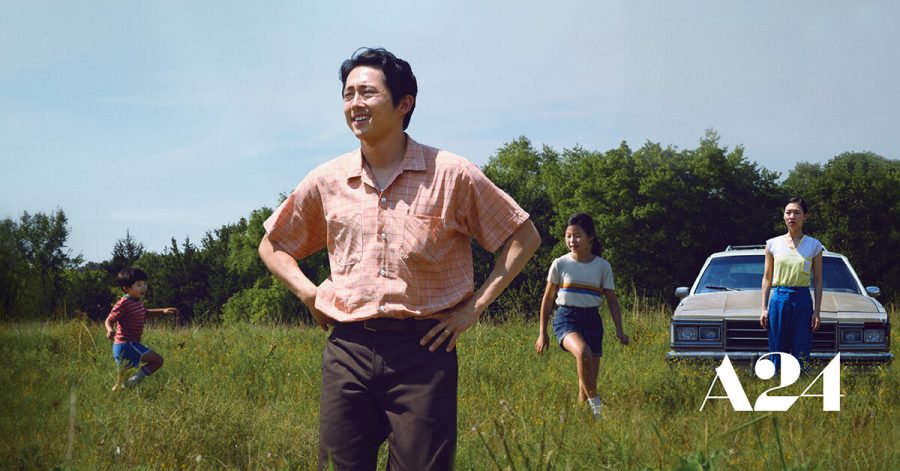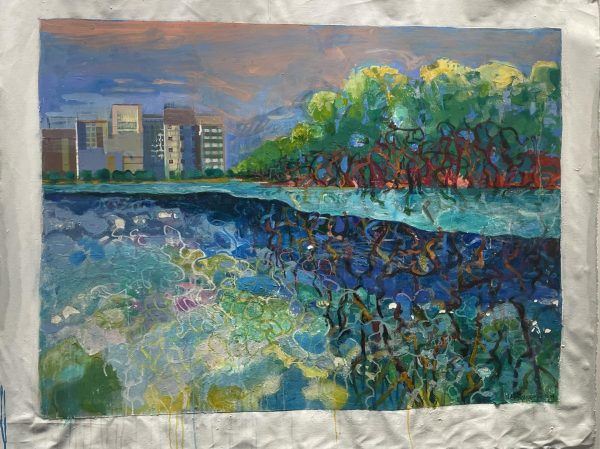‘Minari’ is a stunningly accurate portrayal of faith, farming and family
미나리, a parsley-like herb commonly used in Korean, Indian and Japanese cooking, is known to be able to grow in harsh conditions including rough soil. It also has a purifying effect in that it clears poor soil and water. Translated to English, it is called Minari.
Named after the ingredient, “Minari” follows a Korean-American family that moves to Arkansas in order to pursue their own American Dream. Jacob Yi (Steven Yeun) tries to start his own farm while his wife Monica (Yeri Han) attempts to dissuade him from the prospect, thinking that it is a fruitless endeavor. Their children, David (Alan Kim) and Anne (Noel Cho), grapple with the ramifications of moving to a new home as young children while their Soonja (Youn Yuh-jung), or their grandmother, helps to raise them.
On the surface, this movie seems like your classic immigrant story. A foreign family saves up the money to pursue the fabled “American Dream.” Their new home is idealistic. Shots of vibrant green vegetation swaying in the wind. An endless field that yields the prospect of a bountiful harvest.
The accuracy of the family dynamic between immigrants that this movie portrays is unbelievable. As an Asian-American with immigrant grandparents, I can say with confidence that this movie does an excellent job in conveying the mannerisms of Asian-American immigrants and illustrating the relationships between them.
But my friends, this is more than simply a story about the American Dream and Asian-Americans. This film is a genuine piece of art.
Where do I even begin? Let’s start with the cinematography. As I discussed before, the stunning shots of nature in this film places the viewer in a unique position of feeling the same awe and wonderment that Jacob feels when he arrives at the farm. We then see a shot of the rundown trailer they will live in against the background of said nature, introducing a captivating juxtaposition that symbolizes one of the primary struggles of the plot: Jacob is sacrificing so much, even his very living conditions, in order to pursue a dream of building a farm in the very nature that we see.
The acting is outstanding. The level of maturity and responsibility that Cho’s character adopts from a young age, the stubbornness and playfulness of Kim’s and the hesitancy and caution that oozes from Han’s character is precise and well-developed. All of the performers in this film are terrific.
Yeun’s starry-eyed behavior as Jacob is believable and easy to sympathize with; his frustration and desperation that he gradually displays as the family’s situation becomes more dire is simply compelling. He’s nominated for an Oscar in the category of Best Actor in a Leading Role.
Yuh-jung, however, is undoubtedly the emotional force behind the film’s. Every scene with her is impactful. She dominates the screen with her energy, much like the character that she portrays, as she often is a central part of the emotional core of their family. Unsurprisingly, she has been nominated for an Oscar in the category of Best Actress in a Supporting Role. Additionally, she won the Screen Actors Guild Award and the BAFTA Award for Best Actress in a Supporting Role.
However, the highlight of this film is undoubtedly the script and the symbolism that is weaved in it.
Let’s take the namesake of the film: minari. Minari is grown by the grandmother in an area secluded from the rest of the farm. As I previously mentioned, minari can grow in rough soil and harsh conditions. They’re like weeds; you can’t get rid of them no matter how much work is done to do so.
The minari symbolizes and parallels the current situation of the Yis. They are a foreign entity, much like the minari, working in harsh conditions to try and make a living. No matter how many misfortunes are thrown at the family, the Yis continue to persevere.
The symbol of water is also present throughout the film. Water has the power to both regenerate and destroy, and in “Minari,” we see water do both. But more importantly, water represents the lifeblood of the dream that Jacob holds on to. At the beginning of the film, there is a huge storm that threatens to destroy their new home. But arguably, it also represents the plethora of opportunity that awaits the Yis on the farm and marks the beginning of their journey.
In the pursuit of not turning this into an English essay, I’ll resist discussing more symbols. But undoubtedly, this film is more than good acting and a compelling plot; it has layers of depth and complexity that truly classify it as a piece of art.
So do I recommend Minari? Take a wild guess. Not only is this a movie I would absolutely recommend to anyone, it has now undoubtedly made the list of my all time favorites.
Grade: A+
Oliver has been working with the Pelham Examiner since August of 2019 and looks forward to continuing his contributions. Along with contributing to the...












